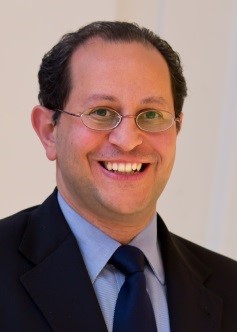 Hazem Galal is PwC's Cities and Local Government Sector Global Leader. With 25 years of consulting experience, Hazem has expertise in strategy formulation and implementation for cities and local government entities. Hazem worked with cities and state governments around the world such as New York, Colorado State, Al Madinah, Abu Dhabi, Dubai, Amsterdam, Moscow, Sochi, Rio de Janeiro, Singapore, Astana, Kuala Lumpur and Beijing, which gives him an edge of expertise in both developed and developing countries conditions. He was the co-chair for the World Business Council for Sustainable Development group that is contributed to the ISO standard for smart infrastructure and the project adviser for the World Economic Forum's upcoming research on the "Future Cities and Urban Services: Shaping the Future of Urban Development & Services".
Hazem Galal is PwC's Cities and Local Government Sector Global Leader. With 25 years of consulting experience, Hazem has expertise in strategy formulation and implementation for cities and local government entities. Hazem worked with cities and state governments around the world such as New York, Colorado State, Al Madinah, Abu Dhabi, Dubai, Amsterdam, Moscow, Sochi, Rio de Janeiro, Singapore, Astana, Kuala Lumpur and Beijing, which gives him an edge of expertise in both developed and developing countries conditions. He was the co-chair for the World Business Council for Sustainable Development group that is contributed to the ISO standard for smart infrastructure and the project adviser for the World Economic Forum's upcoming research on the "Future Cities and Urban Services: Shaping the Future of Urban Development & Services".
Since 2007, Hazem has been leading PwC's Thought Leadership around the world for cities and local governments. He also led PwC's flagship publication "Cities of Opportunity", comparing and benchmarking global cities and iUrban on urban competitiveness on the impact of transformational projects on cities. Hazem is a frequent speaker and moderator at global cities conferences and expert panels organized by the World Cities Summit, World Bank, World Islamic Economic Forum, the Asian Development Bank, the United Nations, the European Commission and other international bodies as well as local and national governments in developed and developing countries, including the BRICS. He has also been hosted as a cities experts on several occasions by leading media channels such as the BBC, CNBC, Russia Today and Channel News Asia.
Hazem has an MBA from the University of California, Berkeley and a BSC in Computer Science/ Engineering (Summa Cum Laude) from California State. He speaks fluent English, Arabic and Portuguese and can also communicate in Spanish.
Presentation abstract:
Title: Urban competitiveness and the future of urban services
As urbanization rates increase around the world, cities continue facing multiple challenges such as climate change, social segregation, and economic development. To respond to these challenges, cities have undergone different transformational projects, many of which are technology enabled, to enhance their urban competitiveness. The success of such transformational projects depends on clarity of vision, collaboration among stakeholders and developing the capabilities and competencies for their implementation. Emerging business models and technologies are being used by the city administrator to deliver smart services in their cities. The use of technology to design and implement smart services can leverage the new models of service delivery by making changes to the way city is administered, and lays out a path to engage private sector in delivery of infrastructure and services to meet growing needs of citizens, businesses and visitors.